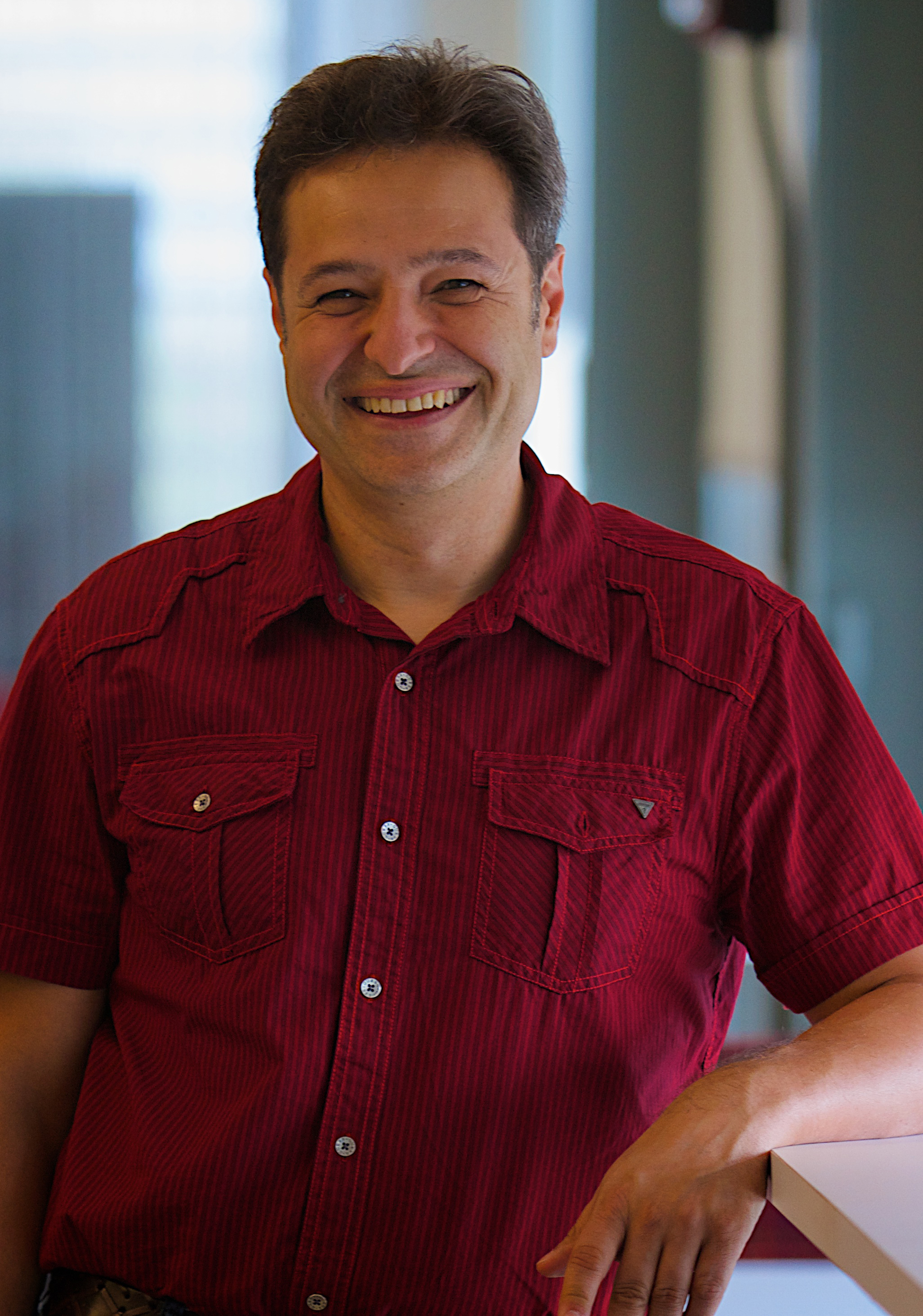New TransPAC chief engineer set to tackle challenges of moving big data

Joseph Lappa
When the GlobalNOC engineering group went looking for a new TransPAC chief engineer to fill Brent Sweeny’s shoes, they were seeking a versatile and experienced networking professional. By hiring Joseph Lappa, they’ve added not only an ace engineer to the International Networks at Indiana University (IN@IU) team but an artist as well.
Lappa comes to IN@IU via the Pittsburgh Supercomputing Center (PSC), where he has served since 1991. His PSC work began with programming blood cell interaction simulations and graphic design for the bio medical engineering group. In 1995, he advanced to the PSC networking team. In addition to his tenure at PSC, Lappa was a key member of the TeraGrid team and its successor, the Extreme Science and Engineering Discovery Environment (XSEDE) project, where he recently served as operational manager.
“We are extremely pleased Joe has joined the International Networking team,” said Dave Jent, associate vice president of networks at Indiana University. “He has unique insights into network architecture, managing large data flows, and connecting diverse network resources – assets critical to International Network’s strategic direction that focuses not only on circuits, but also on services that support researchers and science applications.”
PSC’s involvement with national research networks afforded Lappa an introduction to Brent Sweeny, former senior network engineer for the Global Research Network Operations Center (GlobalNOC). When Sweeny told him about the TransPAC opening, Lappa jumped at the chance to work alongside the GlobalNOC engineers once again.
“We look forward to Joe’s contributions and think his experience with software-defined networking to enable better data movement applications will dovetail nicely with our existing work in this area,” said Jennifer Schopf, director of IN@IU. “He will work closely with our TransPAC partners, helping to grow both the available bandwidth and services we offer to research scientists sharing data between the US and Asia.”
As TransPAC chief engineer, Lappa will represent IN@IU at Asia-Pacific Advanced Network and Trans-Eurasian Information Network meetings. Lappa said he looks forward to partnering with the TransPAC engineers, whose experience with Internet Protocol version 6 (IPv6) will help him cover new ground. Through Lappa’s involvement, IU will gain a better understanding of how to deploy, manage, and get around the pitfalls of IPv6 on a large scale.
Another challenge Lappa foresees is helping TransPAC manage network transmissions between the US and Asia. An exchange between Beijing and Los Angeles can run in the hundreds of milliseconds; in contrast, transactions within the US only take about 50 milliseconds. “There’s no way around it because you can’t get faster than the speed of light,” Lappa noted. “So the challenge for TransPAC or Asian engineers working with the US is how to manage it. If there are problems, then how you react is the key.”
He expects there will be other challenges, but problem solving is always an important part of network engineering. Fortunately for Lappa, he has developed a calm stance, honed from years of working with glass.
“When blowing glass, I start out with a form in mind, but I have to be able to adapt,” Lappa said.
“To add color, you have to add a mineral, which adds a new viscosity, and it’s impossible to tell what will happen because the glass will do what it wants to do. As in networking engineering, glassblowing trains you to think on your feet and to think outside the box. It’s a literal version of the old adage ‘if life hands you lemons, make lemonade.’”
In Lappa, IN@IU has landed a top-flight network engineer with the heart of an artist. With broad experience working in high performance computing and networking environments, in a university, and with commercial vendors, Lappa has the toolset required to serve the stakeholders behind R&E network transactions.
Lappa says he is glad to join the respected GlobalNOC engineering team, well known by the community as a very responsive and forward-thinking bunch.
“They will figure something out and won’t take no for an answer. I’m very proud to be part of the team,” Lappa said.

